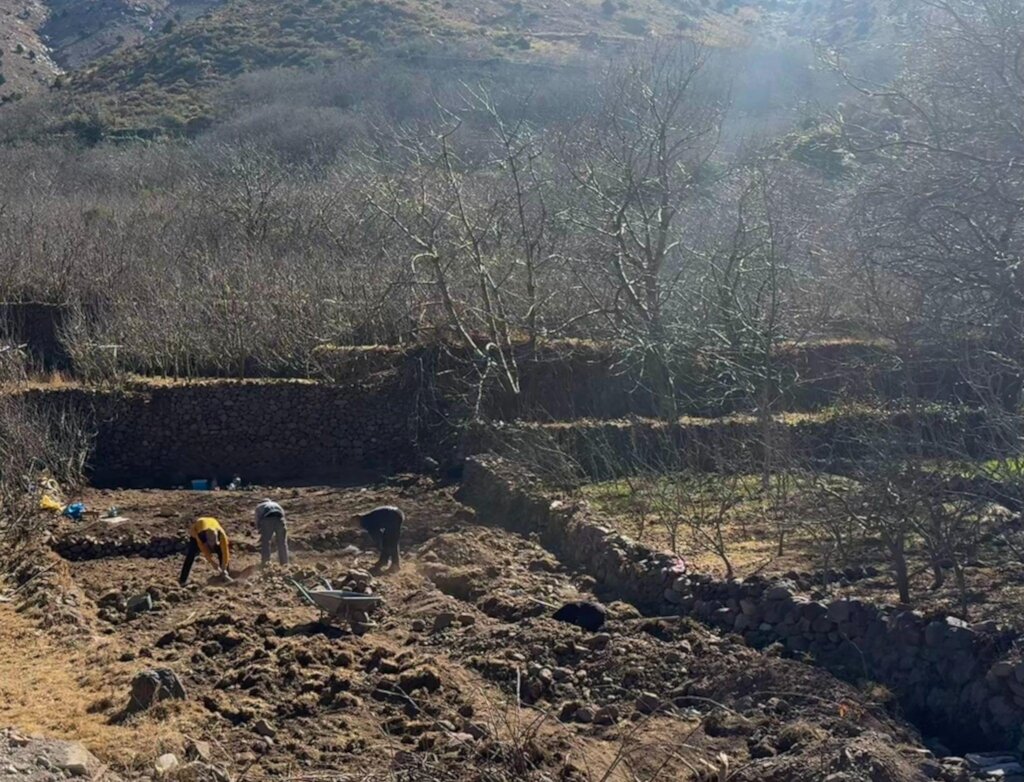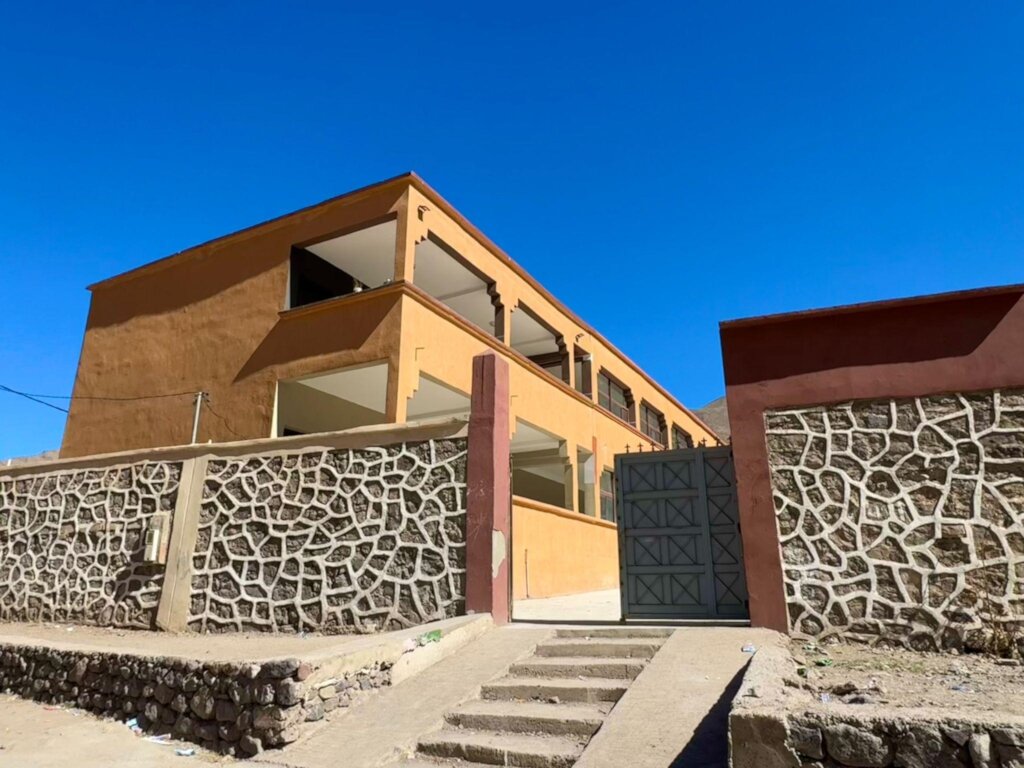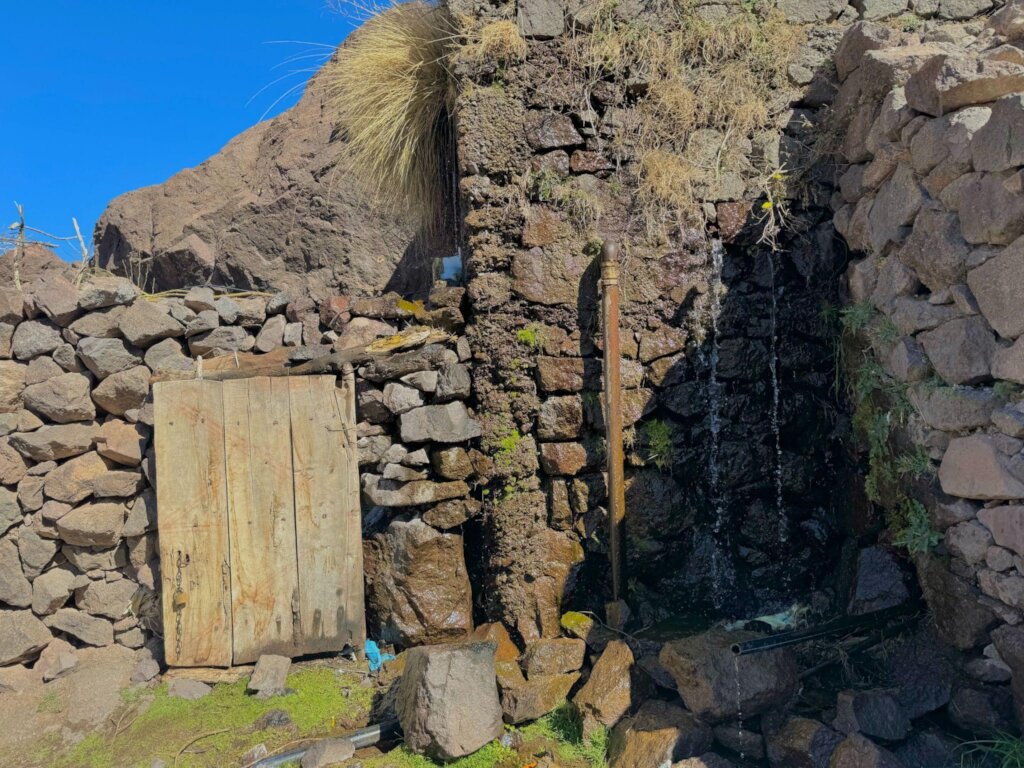By Michaela Creel | HAF intern
Behind everything is water. Without proper management, water can be deadly, harming people and destroying biodiversity. As areas across the globe, including Morocco, continue to face drought and water borne diseases, the need for durable irrigation systems becomes increasingly pressing.
Prioritizing sustainable construction and control of these systems has proven paramount after the destruction of expansive water networks, as a result of the 6.8 scale earthquake in Morocco on September 8, 2023.
Within the Al-Haouz province of Morocco, where most damage is concentrated, sits the mountainous Aroumd village. Lined by trees and terraces, the Aroumd community is home to 3,100 people who depend on water that the mountain provides.
However, due to the ruin left by the earthquake, combined with a prior lack of resources, the farmers and trees which they care for are left without the opportunity to thrive.
No one understands the need for new and sturdy structures better than those living in Aroumd. The empathy held in the hearts of each community member has become the oxygen that the village needs to breathe.
This can be felt in the tilled soil of terraces that grasps the roots of apple trees, heard in the voices of children coming from the school which their fathers and mothers built, and tasted in the water supplied by the well that their cousins maintain. Absence of any of these individuals poses a threat of failure for another.
Combatting this are individuals such as Mohammed. Despite facing the deafening sound of neighbors' homes crumbling, he chose to not only hear but listen to the needs of others.
As the immediate demand of food, water, and shelter weighed heavily on the minds and bodies of the people in Aroumd, the necessity of building sustainable structures was not lost.
Welcoming those who lost their homes into their own, Mohammed along with other active community members identified a prominent need for irrigation and education.
Constructed by the hands of community members, the multi-story school makes a powerful promise to the future generations of Aroumd.
Held within the pale orange walls of the school, this promise reaches beyond education and into an appreciation for each other shown through people like Mohammed.
This sentiment lives on in each classroom. However, without proper access to water this education and progress is halted.
Battling the crucial role of education against the necessity of water, Mohammed and other community members advocate for the implementation of new and reconstructed irrigation systems.
Across from the village, at the peak of a nearby mountain, sits an untapped water source with immense promise. Tracing across the sky with his hand, Mohammed displayed the line in which irrigation would be implemented from the source, across the mountainside, and to the terraces.
Rushing through these pipes and canals lies the opportunity for a self-sustaining future for each individual in the Aroumd village.
Project reports on GlobalGiving are posted directly to globalgiving.org by Project Leaders as they are completed, generally every 3-4 months. To protect the integrity of these documents, GlobalGiving does not alter them; therefore you may find some language or formatting issues.
If you donate to this project or have donated to this project, you can receive an email when this project posts a report. You can also subscribe for reports without donating.
Support this important cause by creating a personalized fundraising page.
Start a Fundraiser

